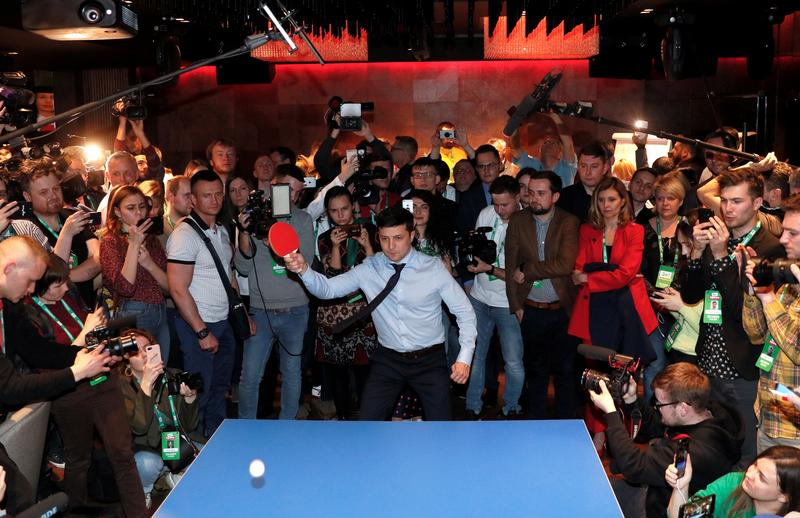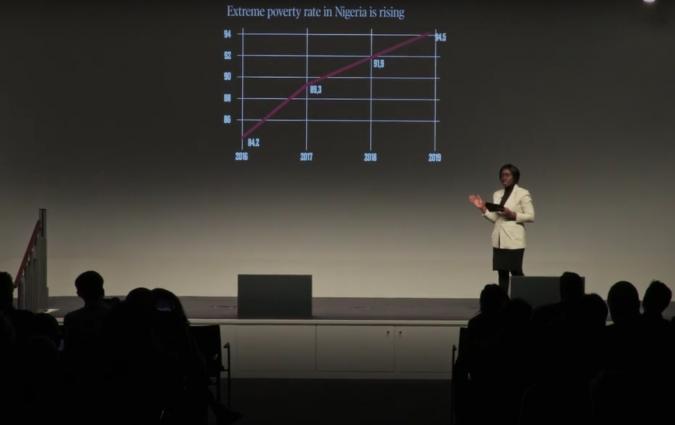In this piece
Amid oligarchy and digitalisation: the rise of a self-proclaimed 'servant'

Volodymyr Zelenskiy playing table tennis at his campaign headquarters after voting concluded in Kiev. (Photo: Valentyn Ogirenko/Reuters)
In this piece
It sounds like the premise of a great Netflix series: a video of a teacher goes viral after his uncensored rant about government corruption is caught on film by a student. His class persuades him to run for office. He wins the presidency.
And, yes, it is now on Netflix (Servant of the People), and it’s an enjoyable series. But it becomes surreal viewing when you add the twist: the lead actor in the series, Volodymyr Zelenskiy, is now the president of Ukraine. He decided to contest the real-life election in 2019, at the same time as the country was watching season three unfold.
Political commentators had many theories to offer: was it his use of social media, his stance against the corrupt elite, his ability to capture the mood of the nation? There were conspiracies offered too: was he aided by his former TV boss, Ihor Kolomoyskiy, or installed by Vladimir Putin’s cyber army?
A year into his presidency, we can begin the search for a clearer, more nuanced picture. During my fellowship at the Reuters Institute I spent my time weighing theories, considering evidence, and interviewing experts to find out how social media shaped Zelenskiy’s victory in Ukraine.
Why does it matter? To paraphrase American historian Timothy Snyder’s January 2020 Twitter thread: what happens in Ukraine matters for the rest of the world because it acts as “a signal of coming political trends”, and it is at the centre of two major challenges of contemporary politics: “oligarchy and digitalization".
Since taking office, Zelenskiy has faced many challenges: how to deal with a war, economic and social reforms, and now Covid-19. The role of president, it turns out, is more complicated than that portrayed by his lovable character in Servant of the People. Confidence in his government has started to erode.
Angered by disinformation, bots, and even poor grammar on the Telegram app, Zelenskiy now warns Ukrainians about the dangers of social media and messaging apps. With no hint of irony, the president told Interfax he believed journalism was being diluted by those who would “play” at taking on an expert profession.
“With all due respect to some bloggers, it seems the many people who pick up their phone today and become ‘journalists’ have generally polluted the profession," he said. “The destruction of any trade always occurs when a non-specialist comes there. And as their numbers grow, the trade is destroyed, because trust is lost.”




